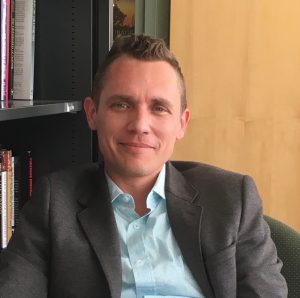Zoonotic Care: Helping Sanctuary Go Viral
Animal sanctuaries are invaluable to the broader animal advocacy movement both for the qualitative difference they make in the lives of individual animals and for the symbolic power these experiments in alternative species relations have in modeling different possibilities for how humans can live with other animals. Beyond their symbolic value for inspiring struggle toward a better future, sanctuaries perform the essential task of working through the difficulties and contradictions of manifesting that future – the pragmatic labor necessary to achieve more radical potential transformations in human-animal relations. At the same time, providing sanctuary as a form of activist intervention is becoming increasingly relevant to political movements beyond those focused on the treatment of non-human animals. With the hyper-xenophobic intensification of US immigration control efforts under the Trump regime, for example, the idea of sanctuary for people is gaining renewed political support in the form of sanctuary cities or communities that could provide a physical space of (limited) protection from these efforts. Animal sanctuaries thus provide a lens not only for understanding shifting practices of relating to or caring for other species, but also for examining how sanctuary as simultaneously spatial and ideological modes of being may provide the basis for a broader counter-hegemonic challenge to violent practices of exploitation targeted at a range of different others. This keynote thus explores the potential for sanctuary as a form of political activism that can invert the dynamic of conventional zoonosis – spreading harm to humans from other animals – by instead expanding practices of mutual care and anti-violence to larger scales of resistance to oppression and violence while weaving new webs of inter-species solidarity.
About Elan:
 Elan Abrell received a J.D. from Berkeley Law School at the University of California and a Ph.D. in Cultural Anthropology from the Graduate Center of the City University of New York. His dissertation, Saving Animals: Everyday Practices of Care and Rescue in the US Animal Sanctuary Movement, examines how sanctuary caregivers respond to a range of ethical dilemmas and material constraints while attempting to meet the various and sometimes conflicting needs of rescued animals. He was a 2017-18 Farmed Animal Law & Policy Fellow at the Animal Law & Policy Program at Harvard Law School, where he conducted research on his current project on cellular agriculture, a new field of agricultural production intended to reduce the negative impacts of animal-based agriculture on animals and the environment.
Elan Abrell received a J.D. from Berkeley Law School at the University of California and a Ph.D. in Cultural Anthropology from the Graduate Center of the City University of New York. His dissertation, Saving Animals: Everyday Practices of Care and Rescue in the US Animal Sanctuary Movement, examines how sanctuary caregivers respond to a range of ethical dilemmas and material constraints while attempting to meet the various and sometimes conflicting needs of rescued animals. He was a 2017-18 Farmed Animal Law & Policy Fellow at the Animal Law & Policy Program at Harvard Law School, where he conducted research on his current project on cellular agriculture, a new field of agricultural production intended to reduce the negative impacts of animal-based agriculture on animals and the environment.
